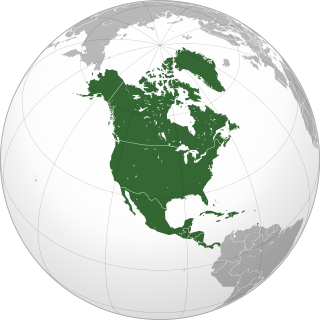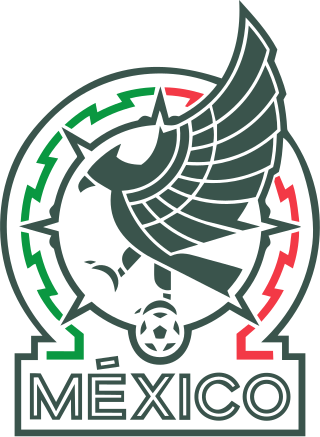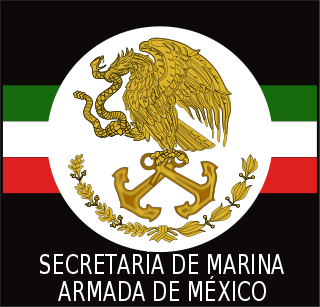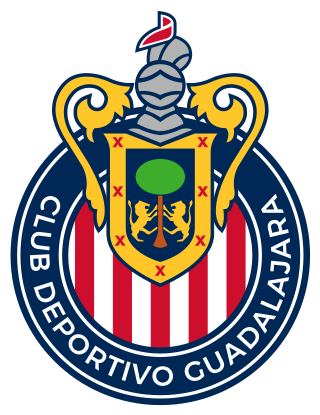
Mexico City is the capital and largest city of Mexico, and the most populous city in North America. Mexico City is one of the most important cultural and financial centers in the world. It is located in the Valley of Mexico within the high Mexican central plateau, at an altitude of 2,240 meters (7,350 ft). The city has 16 boroughs or demarcaciones territoriales, which are in turn divided into neighborhoods or colonias.

North America is a continent in the Northern and Western Hemispheres. North America is bordered to the north by the Arctic Ocean, to the east by the Atlantic Ocean, to the southeast by South America and the Caribbean Sea, and to the west and south by the Pacific Ocean. The region includes the Bahamas, Bermuda, Canada, the Caribbean, Central America, Clipperton Island, Greenland, Mexico, Saint Pierre and Miquelon, Turks and Caicos Islands, and the United States.

New Mexico is a landlocked state in the Southwestern region of the United States. It is one of the Mountain States of the southern Rocky Mountains, sharing the Four Corners region with Utah, Colorado, and Arizona. It also borders Texas to the east and southeast, Oklahoma to the northeast, and the Mexican states of Chihuahua and Sonora to the south. New Mexico's largest city is Albuquerque, and its state capital is Santa Fe, the oldest state capital in the U.S., founded in 1610 as the government seat of Nuevo México in New Spain.

Albuquerque, also known as ABQ, Burque, and the Duke City, is the most populous city in the U.S. state of New Mexico. Founded in 1706 as La Villa de Alburquerque by Santa Fe de Nuevo México governor Francisco Cuervo y Valdés, and named in honor of Francisco Fernández de la Cueva, 10th Duke of Alburquerque and Viceroy of New Spain, it served as an outpost on El Camino Real linking Mexico City to the northernmost territories of New Spain.

Mexico City International Airport ; officially Aeropuerto Internacional Benito Juárez is the primary international airport serving Greater Mexico City. It is the busiest airport in Mexico and Latin America, ranking as the 17th-busiest in the world and eighth in North America as of 2022, based on passenger traffic and aircraft movements.

El Paso is a city in and the county seat of El Paso County, Texas, United States. The 2020 population of the city from the U.S. Census Bureau was 678,815, making it the 22nd-most populous city in the U.S., the most populous city in West Texas, and the sixth-most populous city in Texas. Its metropolitan statistical area covers all of El Paso and Hudspeth counties in Texas, and had a population of 868,859 in 2020.

Mexican Americans are Americans of Mexican heritage. In 2022, Mexican Americans comprised 11.2% of the US population and 58.9% of all Hispanic and Latino Americans. In 2019, 71% of Mexican Americans were born in the United States; they make up 53% of the total population of foreign-born Hispanic Americans and 25% of the total foreign-born population. Chicano is a term used by some to describe the unique identity held by Mexican-Americans. The United States is home to the second-largest Mexican community in the world, behind only Mexico. Most Mexican Americans reside in the Southwest, with over 60% of Mexican Americans living in the states of California and Texas.

Ariadna Thalía Sodi Miranda, known mononymously as Thalía, is a Mexican singer, songwriter and actress. Referred to as the "Queen of Latin Pop", she is considered one of the most successful and influential Mexican artists. Having sold around 25 million records worldwide, she is one of the best-selling Latin music artists of all time. Aside from her native Spanish, Thalía has also sung in English, French, Portuguese and Tagalog.

The United States men's national soccer team (USMNT) represents the United States in men's international soccer competitions. The team is governed by the United States Soccer Federation, which is a member of FIFA and CONCACAF.

The Mexico national football team represents Mexico in international football and is governed by the Mexican Football Federation. It competes as a member of CONCACAF.

Club de Fútbol América S.A. de C.V., commonly known as Club América, is a professional football club based in Mexico City. Nicknamed Las Águilas, it competes in Liga MX, the top tier of Mexican football. The club was founded in 1916, and since 1959 has been owned by mass media company Televisa. The team plays its home games at the Estadio Azteca, the largest stadium in Latin America and one of the largest in the world.

The Mexican Navy is one of the two independent armed forces of Mexico. The actual naval forces are called the Armada de México. The Secretaría de Marina (SEMAR) includes both the Armada itself and the attached ministerial and civil service. The commander of the Navy is the Secretary of the Navy, who is both a cabinet minister and a career naval officer.

Francisco Guillermo Ochoa Magaña, commonly known as "Memo Ochoa", is a Mexican professional footballer who plays as a goalkeeper for the Mexico national team. Ochoa is the most capped goalkeeper in the history of the national side, and currently third on the all-time list with 150 appearances.

Mexico, officially the United Mexican States, is a country in the southern portion of North America. Covering 1,972,550 km2, it is the world's 13th largest country by area; with a population of almost 130 million, it is the 10th most populous country and has the most Spanish speakers in the world. Mexico is organized as a federal constitutional republic comprising 31 states and Mexico City, its capital and largest city, and among the world's most populous metropolitan areas. The country shares land borders with the United States to the north, with Guatemala and Belize to the southeast; as well as maritime borders with the Pacific Ocean to the west, the Caribbean Sea to the southeast, and the Gulf of Mexico to the east.

Joaquín Archivaldo Guzmán Loera, commonly known as "El Chapo" and "JGL", is a Mexican former drug lord and a former leader within the Sinaloa Cartel, an international crime syndicate. He was considered to be the most powerful drug trafficker and murderer in the world.

The Mexican drug war is an ongoing asymmetric armed conflict between the Mexican government and various drug trafficking syndicates. When the Mexican military intervened in 2006, the government's main objective was to reduce drug-related violence. The Mexican government has asserted that their primary focus is dismantling the cartels and preventing drug trafficking. The conflict has been described as the Mexican theater of the global war on drugs, as led by the United States federal government.

Eiza González Reyna is a Mexican actress and singer. She gained popularity for starring in the Argentine Nickelodeon teen sitcom Sueña conmigo (2010–2011). As a singer, she released the albums Contracorriente (2009) and Te Acordarás de Mí (2012).

Club Deportivo Guadalajara, nicknamed Chivas ("Goats"), is a Mexican professional football club based in the Guadalajara metropolitan area, Jalisco, Mexico. The team competes in the Liga MX, the top tier of Mexican football. Guadalajara is one of the ten founding members of the Primera División and is one of seven teams that have never been relegated.

The National Regeneration Movement, commonly referred to by its syllabic abbreviation Morena is a major left-wing populist political party in Mexico. As of 2023, it is the largest political party in Mexico by number of members; it has been the ruling party since 2018, and won a second term in the 2024 general election.

On September 26, 2014, forty-three male students from the Ayotzinapa Rural Teachers' College disappeared after being forcibly abducted in Iguala, Guerrero, Mexico, in what has been called "one of Mexico’s most infamous human rights cases". They were allegedly taken into custody by local police officers from Iguala and Cocula in collusion with organised crime, with later evidence implicating the Mexican Army. Officials have concluded "there is no indication the students are alive", but as of 2024, only three students remains have been identified and their deaths confirmed.



















